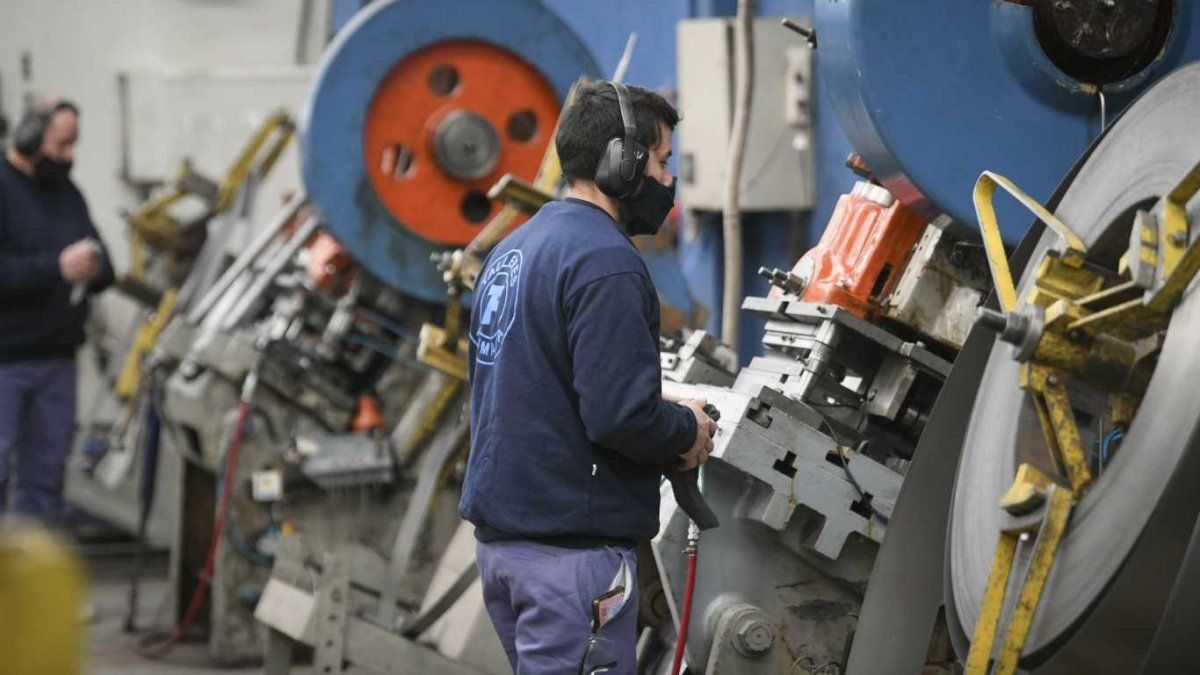When asked what salary increase the company could face, the average of all the answers gave as a result the possibility of granting a rise of 28.1%far from the almost 60% inflation estimated by the Central Bank’s REM. 42% answered that they could give a 30% increase or more. But inside there are distinctions: only 1.8% of SMEs said they could give 60% or more. 13% said they could give 30%, 15% said they could give 40% and another 13% mentioned being able to make a 50% adjustment. On the other hand, 1 out of 3 SMEs said they could give up to 20%: within that number, There are 12% of SMEs that answered that they could not give “any increase”.
“Our position is that the purchasing power of the worker has to grow. That is why we agree with the bonus that the Government will give, necessary to restore the purchasing power of lower-income workers. But parity of 60% for SMEs is crazy, only 1% could give 60% increase”, assured Leo Bilanski, head of Enac, during the presentation of the report.
The reason, he explained, has to do with the fact that there are “three classes” of workers: “Class A, unionized, with salaries above $120,000; Class B, from SMEs, which earn an average of $70,000 and do not have union coverage; and finally those of class C, which are in the popular economy. Politics has to merge these three layers, because if some are not taken care of, the others remain in survival mode.”
The leader admitted that SMEs are in a difficult situation to apply good parities, in a sector where there may be irregular hiring, after difficult years for SMEs, which depend on the internal market and with consumption that was in decline for three years. According to Enac figures, In the Cambiemos government, 31,000 SMEs closed, and during the pandemic, another 53,000 did.
pymes.png
But where he did consider that they could be in a position to make a contribution is in terms of granting a one-time bonus. The survey found that they could give an average bonus of $17,051. 40% said they could not do it “at all”, while 25% said they could do it for less than $30,000. “We believe that the entire private sector has to give something online to what the State will give, SMEs could if the Government requests it, but it has to be a political decision”Bilanski assured. Asked about what impact the negotiation of the minimum wage has on SMEs that have labor informality, he replied: “It lost reference.”
This dark outlook for income in SMEs occurs in a context of falling private consumption during the start of 2022, according to data from the consulting firm Eco Go. Due to the acceleration of inflation, family income fell from $32.3 trillion during the fourth quarter of 2021, to 31.8 trillion in the estimate of the first quarter of 2022.
From Enac they affirmed that the points where they are in a better situation is in terms of sales, profitability and hiring. 80% of SMEs answered that they have reasonable sales. 88% said they kept or added staff during the first quarter and 1 in 3 (35%) said they plan to add workers in the next quarter.
On the contrary, the issues that arouse the greatest concern are inflation, the increase in interest rates, which has raised four times in the year, and the next rise for gas. 66% of SMEs had cost increases greater than 20% only during the first three months of the year.
Without a doubt, another central factor of concern is the dollar. But not because of the exchange rate: “It is a variable that we see is controlled,” said Bilasnki. Instead, she questioned import policies. Last week they held a meeting with the Central Bank authorities: “There is a lack of dollars to import, they are guaranteeing very primary inputs, but not intermediate ones. After a record March in imports, they don’t want to compromise reserves, so we hope it will normalize in a month or two, because there are already several sectors that cannot schedule production for the second half,” he said.
Source: Ambito
David William is a talented author who has made a name for himself in the world of writing. He is a professional author who writes on a wide range of topics, from general interest to opinion news. David is currently working as a writer at 24 hours worlds where he brings his unique perspective and in-depth research to his articles, making them both informative and engaging.




